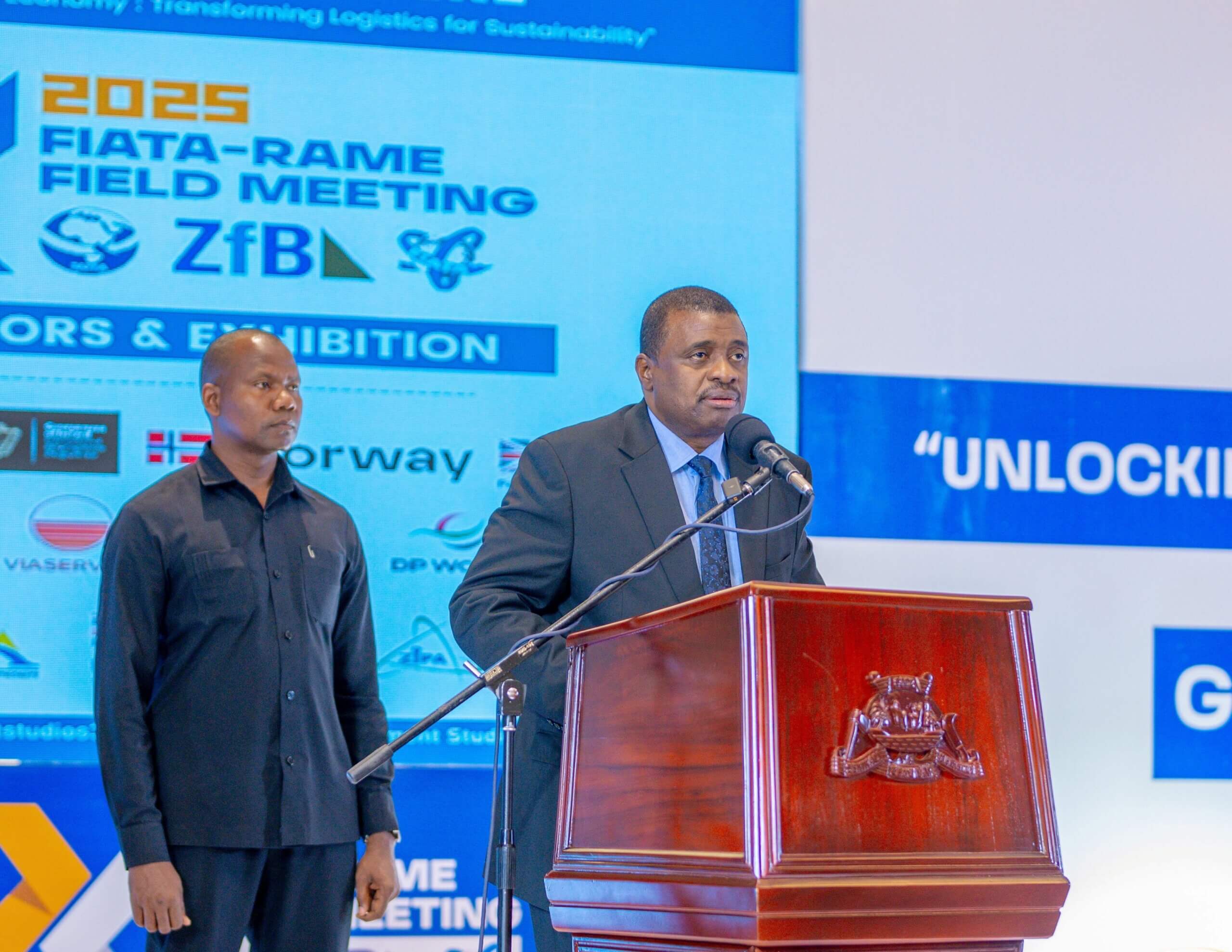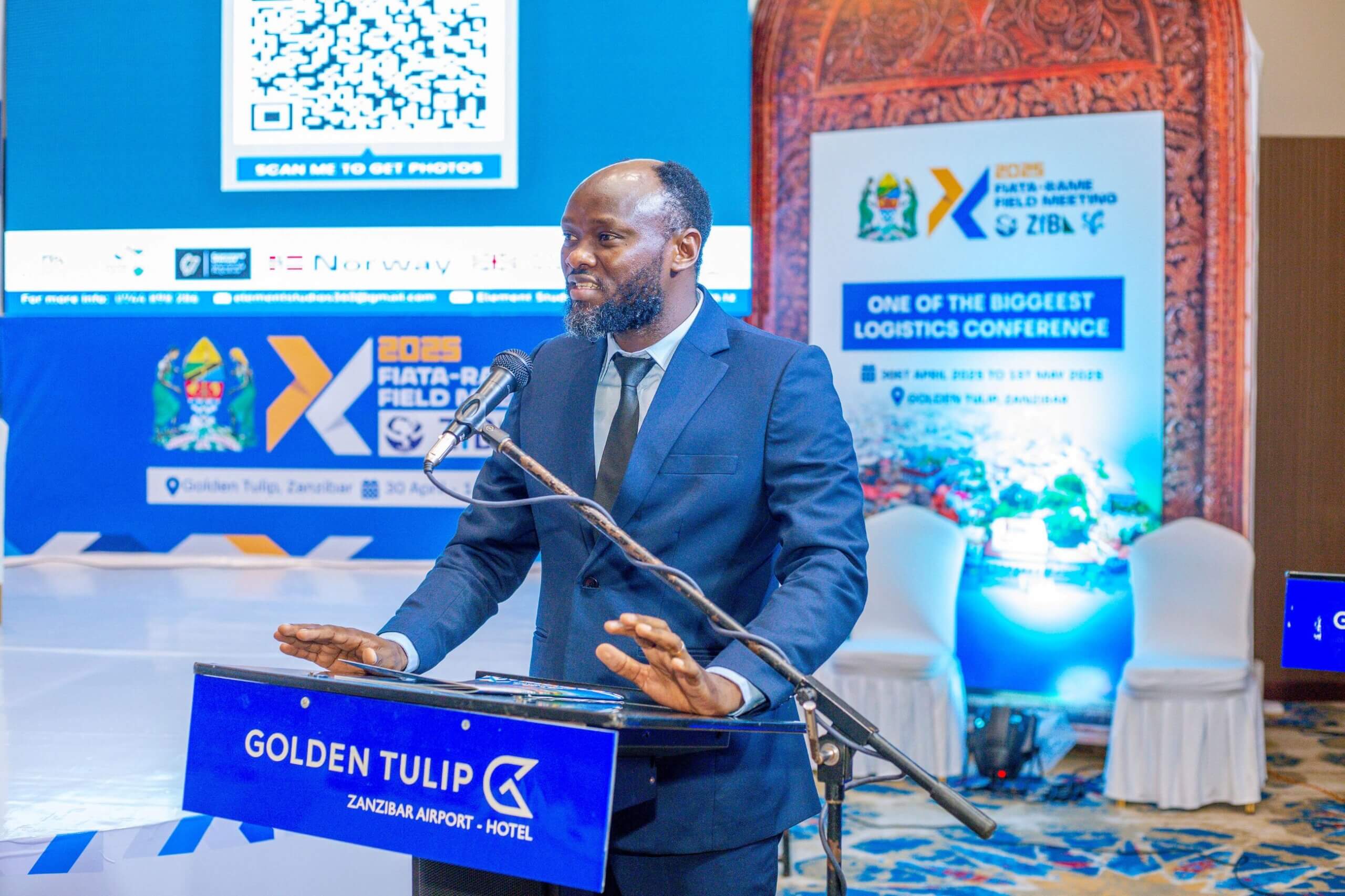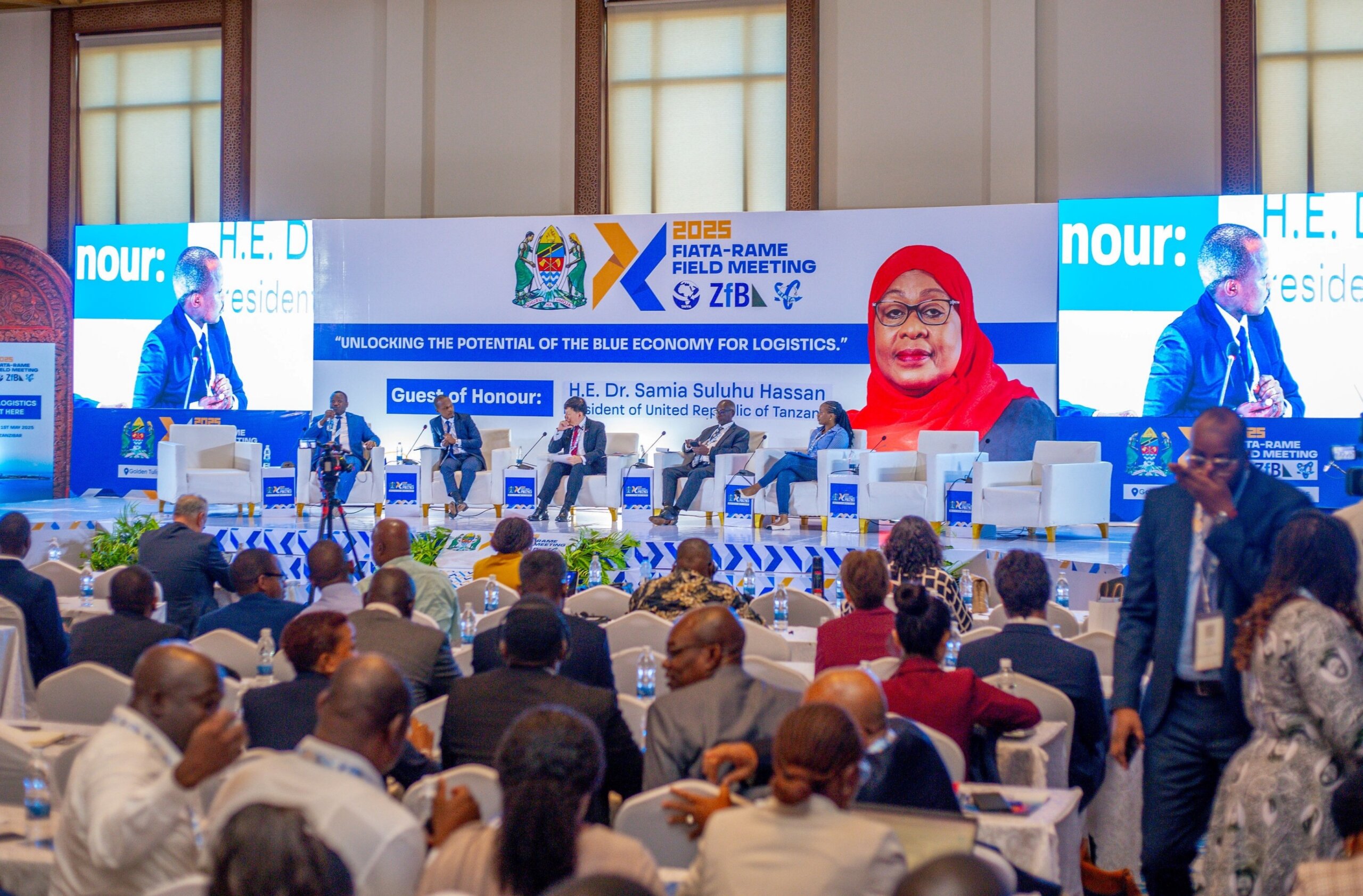Zanzibar, Tanzania, 30 April 2025: Tanzania inaugurated the International Federation of Freight Forwarders Associations Region Africa and Middle East (FIATA RAME) Field Meeting, reaffirming its commitment to building a resilient and sustainable logistics sector as a cornerstone of Blue Economy growth.
The two-day forum aimed to deliver practical reforms, foster global partnerships, and catalyse investment in climate-smart logistics infrastructure. The event was jointly organised by the Tanzania Freight Forwarders Association (TAFFA), the Zanzibar Freight Forwarders Bureau (ZFB), and the Ministry of Transport, with support from TradeMark Africa through funding from UK International Development, the Government of Ireland, and Norway.
Held under the theme “Collaborating in the Blue Economy; Transforming Logistics for Sustainability,” the forum brought together over 500 leaders in logistics, trade facilitation, policy, and academia. It focused on addressing critical inefficiencies in regional logistics systems, including fragmented multimodal networks, sluggish cargo movement, and customs bottlenecks. Given that maritime trade underpinned more than 80% of global commerce (UNCTAD, 2024), and Africa’s logistics costs remained 40–60% above the global average (World Bank, 2023), the urgency for structural reform was evident.

Opening the forum, Zanzibar’s Second Vice President Hemed Suleiman Abdulla stated: “Tanzania embraces the Blue Economy not as a distant ambition but as a current, actionable strategy. We must build a logistics sector that is agile, digitalised, resilient and sustainable. Our ports, roads, railways, and border posts must work as one integrated system, reducing costs and increasing trade flows. In doing so, we safeguard our marine ecosystems while creating new engines of economic growth for our people.”
The meeting advanced discussions on leveraging Tanzania’s and Zanzibar’s Blue Economy potential through sustainable multimodal corridor development, expansion of green ports, climate-smart infrastructure, harmonised customs processes, and wider adoption of Authorised Economic Operator (AEO) schemes to streamline cross-border trade.
Edward John Urio, President of TAFFA, stated: “Logistics is the bloodstream of trade. Without coordinated reform across the value chain, from regulatory frameworks to digital innovation, Tanzania and the wider RAME region risk losing competitiveness. FIATA RAME 2025 gave us the opportunity to course-correct and deliver a resilient, future-ready transport system.”
Omar Mussa, President of the Zanzibar Freight Forwarders Bureau (ZFB), added: “Zanzibar’s future is tied to the sea. By investing in green port infrastructure, streamlining customs, and adopting modern logistics technologies, we can unlock the true value of the Blue Economy and position Zanzibar as a leading maritime trade hub in the region.”

Elibariki Shammy, TradeMark Africa Country Director, emphasised the role of partnerships: “Real change demands collective action. Through private sector engagement, investment in digital solutions, and smart regulatory reforms, Tanzania can catalyse a logistics revolution that supports inclusive growth, fosters innovation, and builds resilience against future shocks.”
Private sector leadership featured prominently throughout the forum. The Freight and Logistics Platform, chaired by the Tanzania Private Sector Foundation (TPSF) and comprising 16 transport and logistics actors, used the platform to call for bold reforms to longstanding inefficiencies.
TPSF Board Chairperson, Angelina Ngalula, concluded: “Efficient logistics is a shared responsibility. Governments must provide an enabling environment, businesses must innovate, and development partners must invest strategically. Our competitiveness and capacity to drive sustainable development rest on this collaboration.”
Tanzania’s logistics network centred on the Dar es Salaam Port, serving six land-linked countries including Rwanda, Burundi, Uganda, Malawi, Zambia, and the Democratic Republic of Congo plays a critical role in the region’s trade facilitation. Enhancing maritime efficiency, customs integration, and infrastructure resilience stands as a strategic imperative.
FIATA RAME 2025 offers a platform to forge the partnerships, innovations, and policy reforms necessary to transform logistics into a catalyst for sustainable growth and prosperity in Africa and the Middle East.















